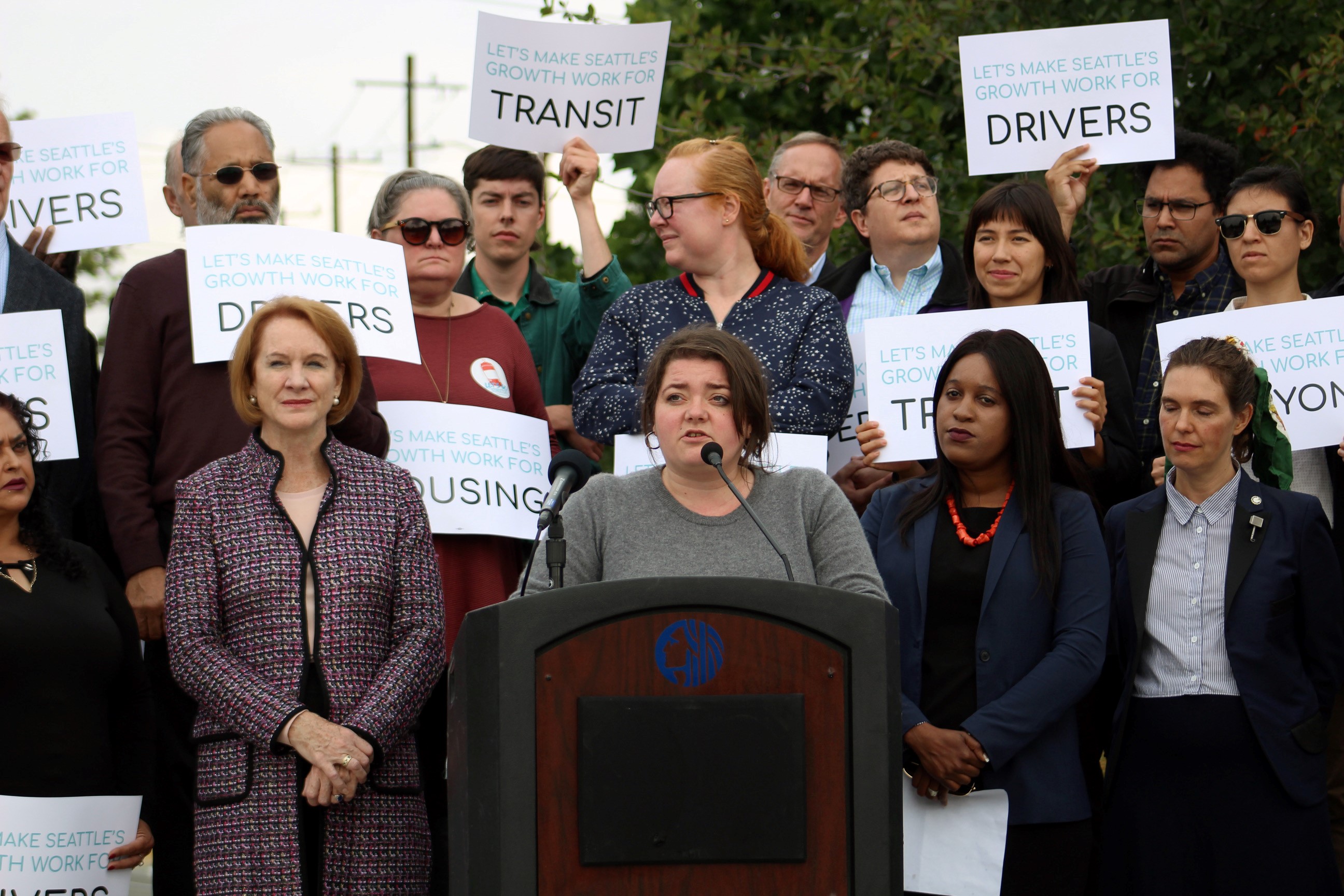
Today, Mayor Durkan introduced a proposal to make major investments in our housing, transportation, and workforce by adding a modest fee to ride hailing services. By doing so, Seattle would join cities across the country that have acknowledged the impact Transportation Network Companies (TNCs) are placing on our already strained roads and resources.
Last year, there were over 24 million rides in Seattle. While TNCs undoubtedly provide some with a convenient transportation option, the influx of trips adds car trips, slows down buses, and takes up curb space, contributing to congestion and vehicle emissions. In addition to the unintended consequences on the transportation system, TNCs have not offered strong worker protections or benefits, or been made to comply with Washington’s wage standards, leaving many drivers taking home far below a living wage. After paying for expenses like gas, car maintenance, and taxes, many Uber and Lyft drivers do not earn a minimum wage or receive benefits.
That’s why Transportation Choices Coalition, along with our housing and labor partners Housing Development Consortium, Teamsters 117, and MLK Labor, supports the Fare Share plan to invest in workers, transportation, and housing near transit. The Fare Share plan will:
- Create fair wages and worker protections for TNC drivers. Uber and Lyft drivers will be paid a fair wage plus benefits and expenses by July 2020. An independent study will determine a fair compensation rate and engage with drivers to make sure the proposal serves the needs of the community.
- Invest in Seattle’s housing and transportation system. A modest fee of $0.51 on TNC rides will support $56 million of investments over five years to fully fund completing the Center City Connector. Streetcar ridership is growing and completing the Center City Connector will link our two existing streetcar lines, carry over 20,000 riders a day, and connect our city’s most densely populated neighborhoods. After 2025, revenue will go towards transit, walking, and biking safety projects throughout Seattle. Another $52 million will fund housing near transit that serves families and individuals making $15 – $25 per hour.
- Establish a Driver Resolution Center. The $0.51 fee will also establish a Driver Resolution Center, which helps drivers resolve disputes regarding unwarranted deactivation and provide drivers’ rights education services.
Seattle is the fastest-growing city in the country over the past decade. People are spending over 70 hours in traffic a year, and average rents increased by nearly 44 percent in Seattle from 2010 to 2018. After housing, transportation is the highest cost to families. As Seattle continues to grow, our transportation and housing infrastructure needs to keep up. If we are a city that prioritizes the health and well-being of our people and our planet, we need to invest in frequent, reliable, and accessible transit options and stable affordable housing.
We are looking forward to working with partners and Seattle City Council to get this legislation passed and ensure that everyone in Seattle has access to opportunities to live a healthy life – a good job, affordable housing near transit, and high-quality transit.
Resources
- The Seattle Times Op-Ed: Small Tax on Uber, Lyft Rides will Help Drivers and Housing Affordability
- Press release
- Fact Sheet: The Fare Share Overview
- Fact Sheet: Landmark Worker Protections
- Fact Sheet: Investing in Housing and Transit
How you can Advocate
- Sign on to the Fare Share Seattle Coalition to show your support for this plan below.
- Email your City legislators and encourage them to invest in housing, transit, and workers!
Join Fare Share Seattle
We join Fare Share Seattle, a coalition of housing, transit, labor, social justice, environmental, health, and community advocates that have come together to make
sure Seattle’s growth is working for everyone. Our Fare Share priorities are:
- Guarantee that Uber and Lyft drivers earn at least the Seattle minimum wage after expenses.
- Ensure that ride hail companies are contributing to thriving, livable communities, by implementing a modest fee on trips to fund affordable housing near transit
and transportation improvements.
[gravityform id=”6″ title=”false” description=”false”]




